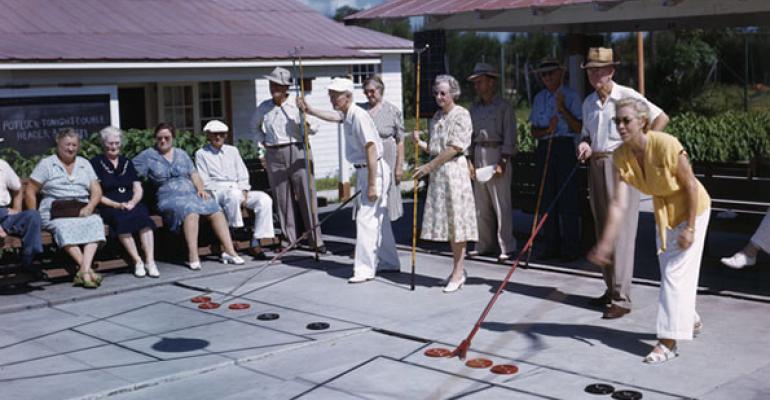CHICAGO (Reuters) - Covering the retirement beat, I often hear this claim: “We’re all living longer.”
It usually precedes arguments for various strategies to help build retirement security in an age of boundless longevity - such as persuading people to save more money or delay filing for Social Security. It also is used to argue that pension, Social Security or Medicare benefits are unaffordable, and should be cut.
Average longevity has indeed risen in the United States but the gains are tapering off, according to the Society of Actuaries (SOA), which this week released its annual “mortality improvement scale,” which pension plan sponsors use to project their future payout obligations.
It reflects a slight decline in life expectancy compared with 2017 due to growth in three of the 10 leading causes of death in the United States: unintentional injury, Alzheimer’s disease and suicide. All three categories increased significantly from 2015 to 2016, he notes. The new life expectancy for a 65-year-old man fell just over a month, to 85.6 years; for women, the average number fell just under a month, to 87.6 years.
The most significant declines have occurred in middle-aged people, aged 25 to 56, notes Hall. And more broadly, he says the U.S. mortality numbers have been deteriorating since 2010. “The trend toward improving mortality has been much lower in recent years than it was historically,” says Dale Hall, managing director of research for the SOA.
The question is, why?
The United States is one of the wealthiest countries in the world, and we spend more on healthcare per capita than any other country. But life expectancy and gains in health have lagged other high-income countries for years, according to a 2013 report sponsored by the National Institutes of Health and which included a panel of medical experts.
The study notes that the United States does have lower-than-average cancer death rates and better control of blood pressure and cholesterol than peer countries. As a result, if you reach age 75 you can expect to live longer than your counterparts abroad.
Losing An Olympic Event
But overall, the study found that Americans are faring worse in a wide range of measures, including infant mortality and low birth weight, injuries and homicides, drug-related deaths, obesity and diabetes, heart disease and chronic lung disease. Many of the conditions sharply reduce the odds of reaching age 50 - and for those who do, the conditions contribute to poorer health and greater illness later in life, the report found.
“If health were an Olympic event, we have been getting beat by lots of other nations,” said Stephen Bezruchka, a professor at the School of Public Health of the University of Washington in Seattle.
The poor performance does not stem only from problems with access to healthcare, he notes. “We tend to confuse health and healthcare,” he said, adding that research shows that medical care accounts for no more than 15 percent of the mortality gap between the United States and other rich countries.
Epidemiologists have documented that societies with less economic equality have worse than average health. Some of this stems from the inability of lower-income households to meet basic needs such as adequate nutrition and shelter. But at the high end of wealth, Bezruchka notes, there is a diminishing-return effect - money can purchase only so much health.
“Those with more income do have lower mortality, but you get a greater return on average health by taking a little from the rich and giving it to the poorer person.”
The high rate of childhood poverty in the United States is another important factor driving life expectancy, he said. “Healthier societies privilege early life in various ways. For example, they give mothers or fathers paid time off to raise kids - the U.S. is one of the only major countries in the world that don’t have a nationally mandated paid parental leave.”
A study released earlier this year by the actuaries at the Social Security Administration based on the agency’s massive database on American workers confirmed that lifetime earnings have a profound effect on longevity.
The differences were expressed as mortality ratios. A ratio of 1.00 means death rates for a given group were equal to the group as a whole; ratios lower than that number indicate lower mortality, while a higher number indicates earlier death.
In 2015 retired men aged 62-64 in the highest-income quintile had a ratio of 0.52, while those in the lowest-income quintile had a ratio of 1.77. The comparable figures for women were not much different - 0.73 for the highest-income quintile, and 1.54 for the lowest.
Proposals to raise the age of eligibility for Social Security or Medicare would be a cruel blow to workers on the wrong side of those numbers. If we are going to achieve more appropriate long-term reforms to these programs it will be important to convince the public that “No - we are not all living longer.”
Instead, we should be focusing on this question: why are Americans in poorer health than people in comparable wealthy nations around the world - and what can we do to change that?
Reporting and writing by Mark Miller in Chicago; Editing by Matthew Lewis






